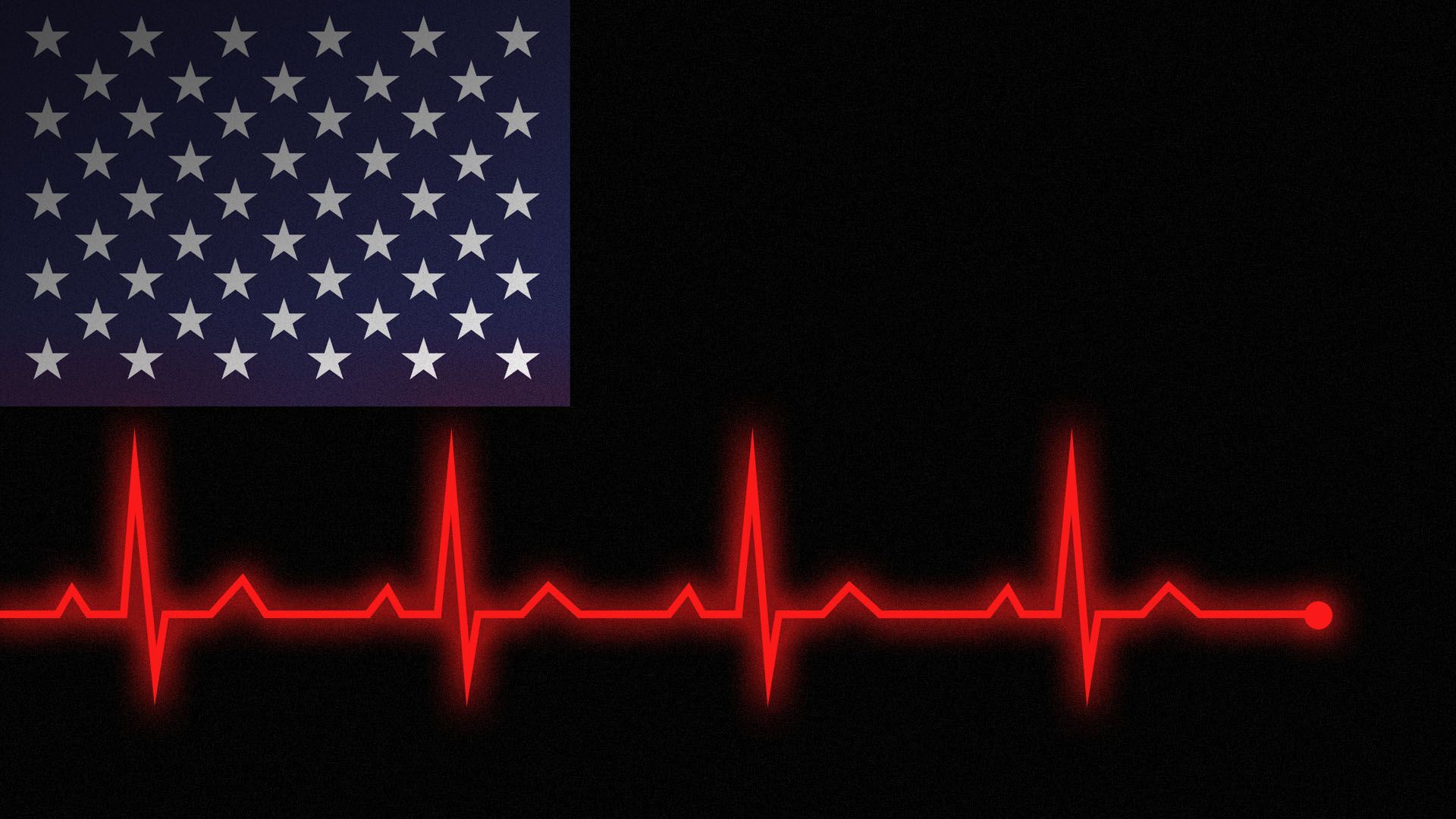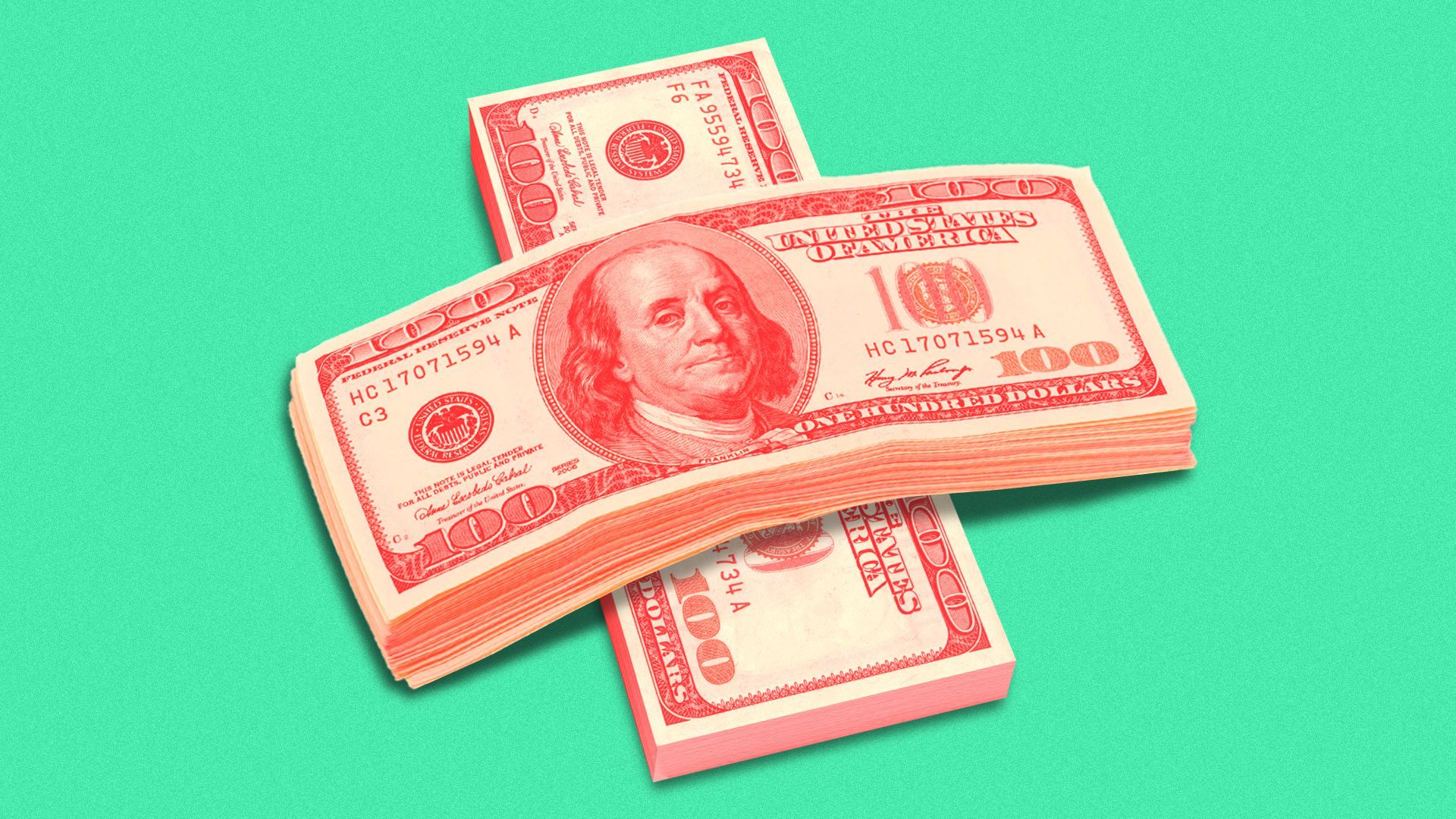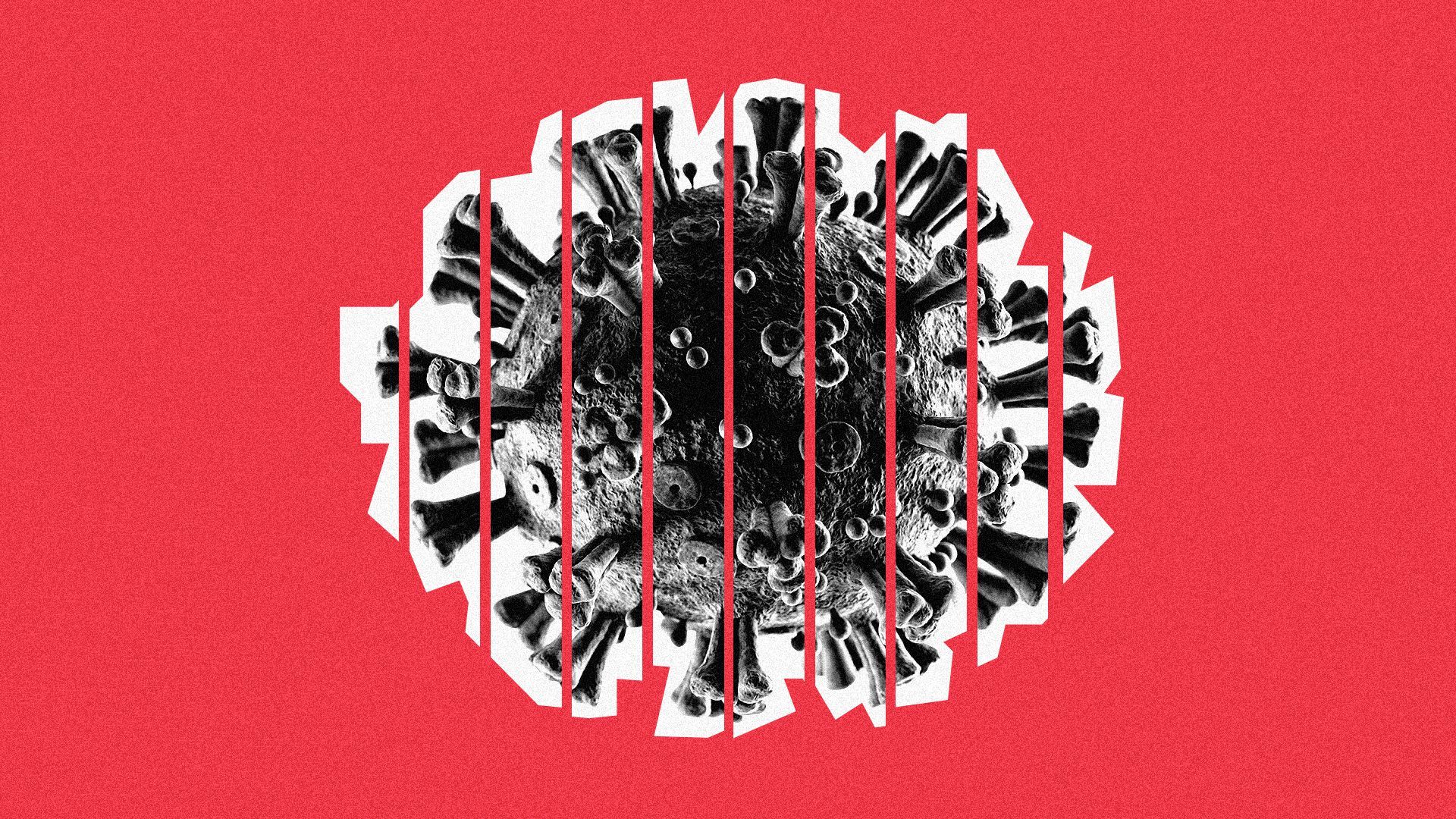| | | | | | | Presented By UnitedHealth Group | | | | Vitals | | By Caitlin Owens ·Mar 29, 2021 | | Good morning. New Axios newsletter launching! Join Axios' Russell Contreras tomorrow at 12:30pm ET for a virtual event on the launch of Axios Latino, a newsletter covering the Latino community in the Americas, featuring Sen. Ben Ray Luján (D-N.M.) and civil rights activist Dolores Huerta. Today's word count is 976, or a 4-minute read. | | | | | | 1 big thing: Millions of Americans remain vulnerable as cases rise |  | | | Illustration: Sarah Grillo/Axios | | | | Coronavirus cases are on the rise again in several states, partially a result of variants of the virus becoming more widespread, experts say. Why it matters: Even though a remarkable 72% of Americans 65 and older have received at least one dose of the vaccine, millions of Americans — particularly younger Americans with underlying conditions — remain vulnerable. Driving the news: Coronavirus cases are rapidly rising in places including Michigan, New York, New Jersey and other Northeastern states. - In Michigan, the number of hospitalized younger adults has dramatically increased this month. Coronavirus hospitalizations increased by 633% for those aged 30 to 39 and by 800% for those aged 40 to 49, the Detroit Free Press reports.
- The variant that originated in the U.K., which is partially driving the new surge, appears to be more transmissible and deadlier.
The big picture: "There are certainly many people who are not vaccinated who are still at severe risk themselves because of underlying medical issues," said Leana Wen, a visiting professor at the Milken Institute School of Public Health at the George Washington University. - Because of vaccination demographics and who's at highest risk of exposure, "the proportion of people who are hospitalized and who will die will likely skew toward a younger subset," she said.
Between the lines: Those still vulnerable to the virus are disproportionately people of color. - That's because prioritizing people for vaccines based on age disproportionately benefits white Americans, who tend to be older than people of color.
- But younger people of color are tend to be at higher risk of severe infections because of underlying conditions.
What they're saying: "To address areas of outbreak, we should allocate more of the increased vaccine supply coming into the market to places where penetration is low and infection rates high, like metro Detroit," former FDA commissioner Scott Gottlieb tweeted. |     | | | | | | 2. The quest to create vaccine passports | | The Biden administration is working alongside private companies to create "vaccine passports" that would allow Americans to prove they've been vaccinated against the coronavirus, the Washington Post reports. Why it matters: Many companies have said they'll require proof of vaccination as part of reopening. - But creating some form of vaccine passport will be riddled with logistical, technological and ethical challenges.
Where it stands: The administration's effort has been led by the Department of Health and Human Services, and the White House has recently taken a larger role in coordinating the involved government agencies, per the Post. - "Our role is to help ensure that any solutions in this area should be simple, free, open source, accessible to people both digitally and on paper, and designed from the start to protect people's privacy," coronavirus coordinator Jeff Zients said at a March 12 briefing.
Details: "The passports are expected to be free and available through applications for smartphones, which could display a scannable code similar to an airline boarding pass," the Post reports. - "Americans without smartphone access should be able to print out the passports, developers have said."
- The Biden administration has identified at least 17 passport initiatives already underway, setting up one of the effort's biggest challenges.
Go deeper: The barriers to vaccine passports |     | | | | | | 3. Another kind of surprise medical bills |  | | | Illustration: Annelise Capossela/Axios | | | | Kaiser Health News' latest edition of its "Bill of the Month" series features a patient who was charged a "facility fee," which drove up what she owed to more than 10 times higher than what she'd previously paid for the same care. Why it matters: Facility fees — which are essentially room rental fees, as KHN puts it — are becoming increasingly controversial, and patients often receive the bill without warning. - Hospitals aren't required to inform patients ahead of time about facility fees.
- Hospitals say they need the revenue to help cover the cost of providing 24/7 care.
What they're saying: "Facility fees are designed by hospitals in particular to grab more revenue from the weakest party in health care: namely, the individual patient," Alan Sager, a professor at the Boston University School of Public Health, told KHN. - The practice is becoming more popular as more private provider practices are bought by hospitals.
- "It's the same physician office it was," said Trish Riley, executive director of the National Academy for State Health Policy. "Operating in exactly the same way, doing exactly the same services — but the hospital chooses to attach a facility fee to it."
|     | | | | | | A message from UnitedHealth Group | | Three ways UnitedHealth Group is lowering drug costs | | |  | | | What we're doing:- Our PreCheck MyScript tool saves consumers an average of $225 on each prescription filled.
- The OptumRx discount card saves consumers up to 80% on retail drugs.
- Discounts at the pharmacy counter save consumers $189 per medication.
Learn more. | | | | | | 4. Study will track COVID among college students | | Scientists launched a National Institutes of Health-backed study with thousands of college students to determine whether Moderna's COVID-19 vaccine can prevent asymptomatic spread of the virus, Axios' Marisa Fernandez reports. Why it matters: The results of the trial could provide vaccinated individuals insight on how careful they really need to be when in close contact with others. What they're saying: "This is a question of extreme importance," Anthony Fauci, director of the National Institute of Allergy and Infectious Diseases, said at a press briefing on Friday. - "But the prevailing question is when these people get infected, how often is that? If they're asymptomatic, how much virus do they have in their nose and do they transmit it to people who are their close contacts?" he added.
The state of play: The study, which launched Thursday, is looking for 12,000 college students to volunteer across 21 campuses, including the University of Maryland, the University of North Carolina, Texas A&M and Indiana University. - Students can sign up here, with multiple ways to participate.
The bottom line: The results, which are anticipated in September, will equip the public and federal government with science-based evidence on mask use and social distancing post-vaccination. |     | | | | | | 5. Catch up quick |  | | | Illustration: Aïda Amer/Axios | | | | Secretary of State Antony Blinken evaded questions about whether the U.S. would seek retaliatory actions against China for its handling of the coronavirus outbreak during an interview on CNN's "State of the Union" Sunday, instead saying that the focus should be on preventing another pandemic in the future. Successful lawsuits waged by parents in three New Jersey school districts have prompted returns to some in-person classes, and invited interest from parents across the state seeking to do the same, the Wall Street Journal reports. Getting kids back to in-person learning could hinge on upgrading the ventilation systems in school buildings, Axios' Kim Hart reports. German officials warned Friday the third wave of the coronavirus in the country is going to be "harder to curb" and could be far worse than the previous two. Former White House coronavirus coordinator Deborah Birx told CNN that she believes that the U.S. coronavirus deaths that occurred after the first surge of cases "could have been mitigated or decreased substantially." |     | | | | | | A message from UnitedHealth Group | | UnitedHealth Group's ideas to lower drug costs | | |  | | | How to lower drug costs: - Capping drug exclusivity can save Medicare more than $20 billion.
- Fully leveraging pharmacy benefit managers can save Medicaid $112 billion over 10 years.
- Value-based prescription drug payments can lower consumers' out-of-pocket costs by 28%.
Learn more. | | | | This newsletter is written in Smart Brevity®. Learn how your team can communicate in the same smart, clear style with Axios HQ. | | | | Axios thanks our partners for supporting our newsletters.
Sponsorship has no influence on editorial content. Axios, 3100 Clarendon Blvd, Suite 1300, Arlington VA 22201 | | | You received this email because you signed up for newsletters from Axios.
Change your preferences or unsubscribe here. | | | Was this email forwarded to you?
Sign up now to get Axios in your inbox. | | | | Follow Axios on social media:    | | | | | |







No comments:
Post a Comment